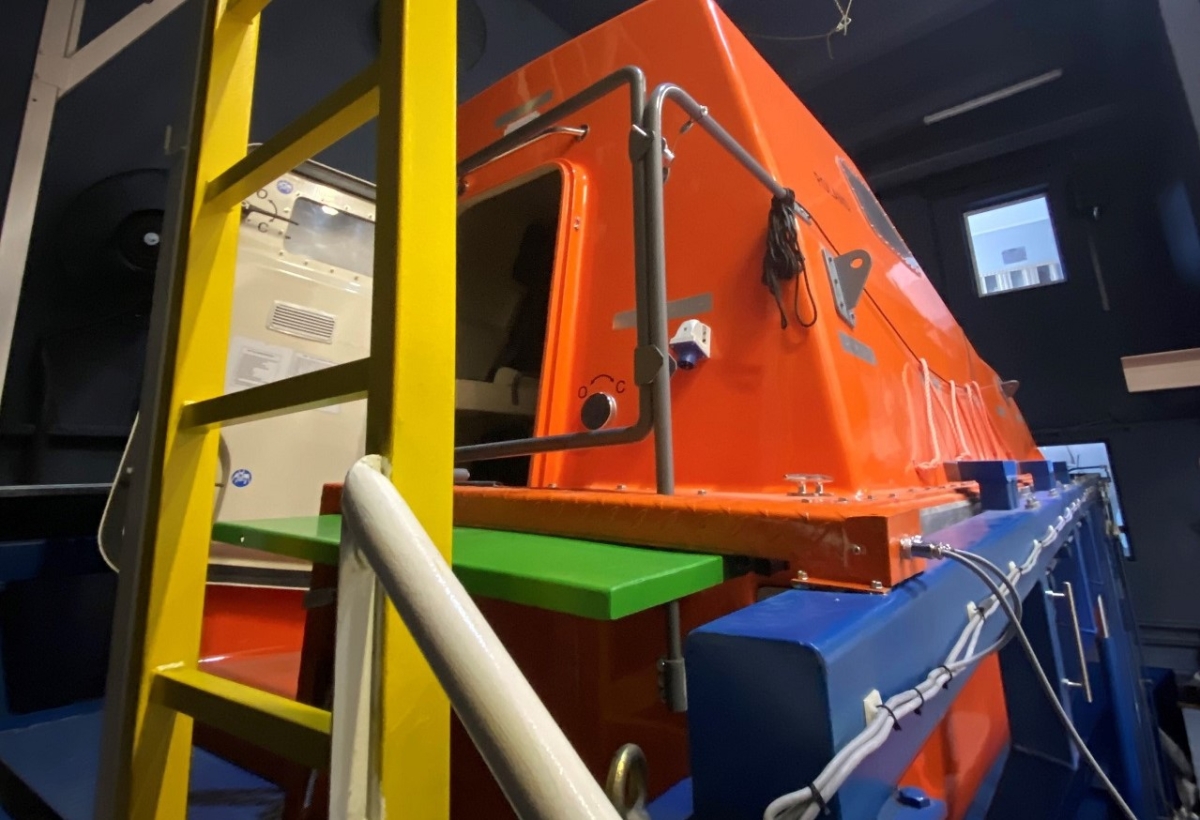
The Maritime School in Gdynia has been conducting courses related
to jack-up vessel operations. Due to the extreme operating conditions of
these vessels, the course was attended by selected employees of the
maritime administration that issues permits for operations and controls
their enforcement in Polish territorial waters.
- Given the
recent acceleration, we have seen an increasing number of students at
all offshore wind farm training courses - says Alfred Naskręt, director
of the Maritime School in Gdynia.
An unusual incentive for
employers is the "Boat Transfer" component, implemented using the
original CTV (crew transfer vessel) simulator, the only one in Poland
for transporting crew and operating offshore wind farms.
-
Descending from a waving vessel to a tower is an activity that requires
special skills that need to be well practiced. Using the CTV simulator
allows you to gradually get used to the sea state. So you can train
those necessary skills for the job in controlled and safe conditions,
without risking your health and life - explains Director Naskręt.
And,
as he calculates, thanks to the simulator, it is possible to simulate
three sea states enriched with the effects of increased waves, radio
communication interference, engine noise, wind gusts, thunderstorms, or
rainfall.
- The escalation of difficulties quickly results in the
intended results that the trainees and principals have been waiting for
- the director stresses.
Training on the CTV simulator is
conducted as part of Global Wind Organization (GWO) training courses.
They are recommended especially in the context of the aforementioned
safety of workers who will undertake future work at Polish wind farms in
the Baltic.
Employees of the Supervision and Monitoring of Sea
Traffic Safety Inspectorate in Maritime Office in Gdynia recently took
part in training courses organized by the Gdynia Maritime School. It was
the Jack-Up Simulator course, which presents the specifics of the
operation of self-supporting vessels adapted for the construction and
operation of offshore wind turbines.
Employees from the offshore
wind energy team expanded their knowledge. The course was an opportunity
to learn about the problems of operation of jack-up 4-leg units in the
construction and operation of offshore wind turbines.
As assessed
by Capt. Maciej Jeleniewski of the Maritime Office in Gdynia, the
presented scope of basic theoretical knowledge, as well as participation
in a simulation of the approach to the monopile, crane loading of heavy
elements and pre-loading, will allow the offshore wind energy team to
more fully understand the issues related to the safety of handling
operations in the port and during the installation of offshore wind
turbine elements in offshore waters.
The course also provided
knowledge of the latest international safety standards applicable to
offshore wind farm construction vessels.
- Thanks to
participation in such a training course, it will be possible to carry
out the tasks envisaged for the maritime administration in ensuring the
safety of navigation in areas of offshore wind farms under construction -
Alfred Naskręt stressed.
We should add that as of June 15, the
Gdynia Maritime School has been recognized as a Knowledge Partner of
Ocean Technologies Group (OTG), while the 25-year cooperation with the
Norwegian company Seagull will expire on December 31, 2022.
The good news is that Seagull has become part of OTG.
-
As a result, its products and services have been merged with other
brands involved in education and assessment of crew knowledge and
skills, which will further meet maritime training needs. The OTG library
currently available contains a powerful knowledge base for anyone
interested. What's more, further expansion is planned and the Gdynia
Maritime School has also been invited to further activities - concludes
Alfred Naskręt.


